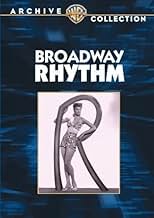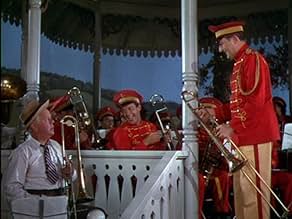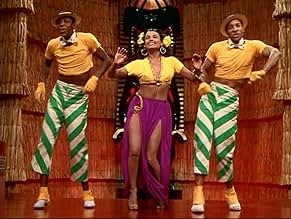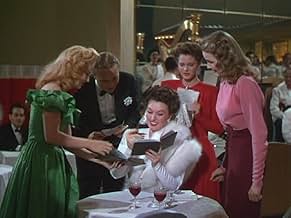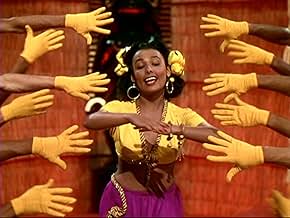A pleasing enough entertainment, working primarily as a pageant of various MGM specialty acts - impressionists, contortionists, nightclub acts, tap-dancers, as well as the standard musical theatrical numbers. The film isn't a musical in the traditional sense, as all the musical numbers are in the contest of an actual performance (some done toward the camera). It's much more in the tradition of a 1960s-70s variety TV show.
There is a connecting plot, though only the slimmest possible. For me, the movie dragged whenever it stopped the music for a little story updating. George Murphy doesn't really dance much here - just briefly toward the beginning and end - and he does an OK piano medley in the middle. Ginny Simms isn't much of a screen presence, but has a great voice used to advantage. Close your eyes while she's singing and you won't miss much onscreen, other than the costumes.
The highlights are in the supporting cast; great numbers from Lena Horne, Tommy Dorsey, Hazel Scott, and Nancy Walker (though you really have to wait for hers; she's a bit underused here). Really nice work from Gloria DeHaven and Kenny Bowers in their couple of tunes, as well as Walter Long's tap-dancing. The singing-contortionist Ross Sisters are something to see, but the impressionist got on my nerves after a while. (Some of his subjects will not register with viewers unfamiliar with the era; there's a couple of topical jokes elsewhere in the film also.)
And Charles Winninger is a pleasure to watch in a diversion for him; I've rarely seen him in musical roles.
In short, worth seeing for most of the musical segments; the rest is unremarkable.
7 of 10

